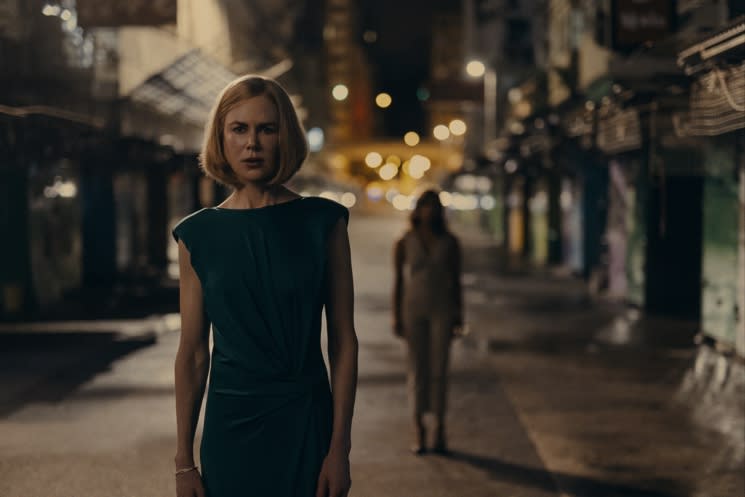The phrase "expats" has become something of a charged word in the last few years. The difference between who is considered an immigrant or an expat tends to come down to skin pigment and which combination of countries make up the point of departure and the final destination. For a series that elicited controversy even before it began filming, Lulu Wang's Expats manages to impressively navigate stories of tragedy and relationships through political upheaval and complex societal constructs.
Based on the novel The Expatriates by Janice Y. K. Lee, the limited series revolves around the disappearance of Margaret (Nicole Kidman) and Clarke Woo's (Brian Tee) youngest son. But Expats isn't simply a story about locating the missing child; rather, it explores the grief and hardship left with the family. As life moves on for all parties involved, Wang uses one family's hardship to illustrate the dynamics between the expat community (the Woo family), the immigrant community (Ji-young Yoo's Mercy), domestic workers from Southeast Asia (Ruby Ruiz's Essie and Amelyn Pardenilla's Puri), and Hong Kong locals (Bonde Sham's Charly and Flora Chan's Olivia).
Across six episodes, Wang (who directs all of them) highlights and contrasts the varying lifestyles found on the densely populated territory. By using different perspectives and taking advantage of the rich diversity found in Hong Kong, Expats brings viewers into different worlds all within the same universe and providing enough context for us to constructively consider the machinations behind this society. Perhaps the one reality Wang can be guilty of sterilizing is that of Hong Kong's domestic workers, which can be incredibly dark and unsettling. However, it's clear through Expats that that the life of helpers is far from glamorous, but also one filled with warmth and care for one another.
Although Margaret's story leads the series, it's Sarayu Blue's performance as Hilary Starr that steals the show. Living in Hong Kong with her husband David (Jack Huston), Hilary's narrative is a familiar one — a shaky marriage founded in doubts surrounding the idea of parenthood — but, through Blue, Hilary uniquely embodies the intricate feelings that come with insecurity and hesitation distilled through an outwardly strong persona. Blue brings to life the subtleties of emotional roller coasters, leaving us heartbroken one minute and freed the next.
Expats began production in Hong Kong in 2021 as the pandemic raged on and the political climate matched the typhoons, many felt it insensitive to film a show about the struggles of the foreign 1 percent. (It didn't help matters that Kidman was granted a quarantine exemption when entering tightly-controlled Hong Kong.)
Rather than brush such matters under the rug and set Expats in another time, Beijing-born Wang applies an unexpected directness. While public figures around the world continue to step lightly around any issues concerning the Chinese government, especially in relation to Hong Kong and Taiwan, Wang makes a clear statement through the series. As Margaret, Hilary and Mercy live their lives, we see the protest play out through newscasts, comments from waiters and, most prominently, in the penultimate episode, "Central 中環," which is the stand-out episode of the series.
Through a tragic mystery, Expats graciously and elegantly depicts a changing Hong Kong with all its cracks and beauty. By shifting the perspective throughout the series, we're given a more rounded outlook of a place and its people. But most of all, the series invites us to unravel our lowest moments and search for the humanity.
